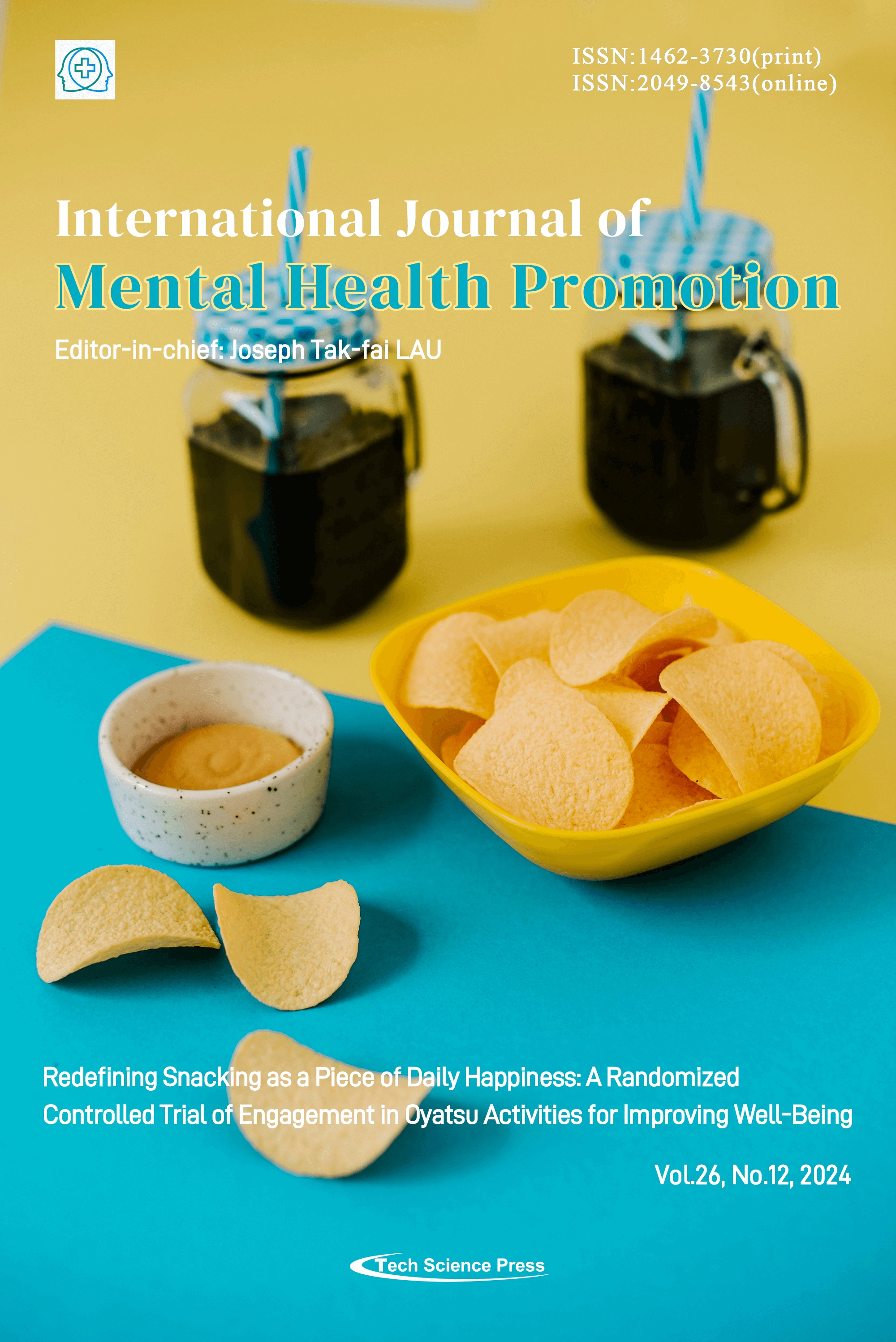
Today, mental illness is one of the most serious social issues in Japan. To proactively prevent psychological disorders and improve and maintain well-being, each individual must take action and engage in small yet significant daily activities for their well-being on a daily basis. The purpose of this study was to investigate if our daily engagement in oyatsu activities, sharing and giving snacks, can enhance hedonic and eudaimonic well-being. We conducted a randomized controlled, open-label, parallel-group comparative design trial. Participants were recruited from a community website run by a snack company in Japan. Participants who were 20 years old or older without currently experiencing physical or mental illnesses were included. The participants in the intervention group (n = 152) were instructed to do oyatsu activities, defined as sharing or giving snacks to others, for one month intentionally, while the participants in the control group (n = 154) were not given any instructions. Hedonic or subjective well-being (SWB) was measured using the Scale of Positive and Negative Experience (SPANE) and Satisfaction with Life Scale (SWLS), and eudaimonic well-being was measured by the Flourishing Scale (FS). A one-way independent t-test was conducted to determine statistically significant differences in the degree of improvement of the scores between the intervention and the control groups. The primary outcome was the difference in change in FS scores from baseline to one-month follow-up between the groups, and the secondary outcome was the difference in change in SWLS and SPANE scores. We found a significant between-group difference in the improvement in FS score from baseline to one-month follow-up (t (280) = 2.235, p = 0.03), as well as SPANE-P (t (280) = 3.514, p < 0.001), SPANE-N (t (282) = −2.651, p = 0.01) and SWLS (t (281) = 2.842, p = 0.01). In conclusion, engaging in oyatsu activities might improve hedonic and eudaimonic well-being partly due to the prosocial nature of oyatsu activities.
View this paper